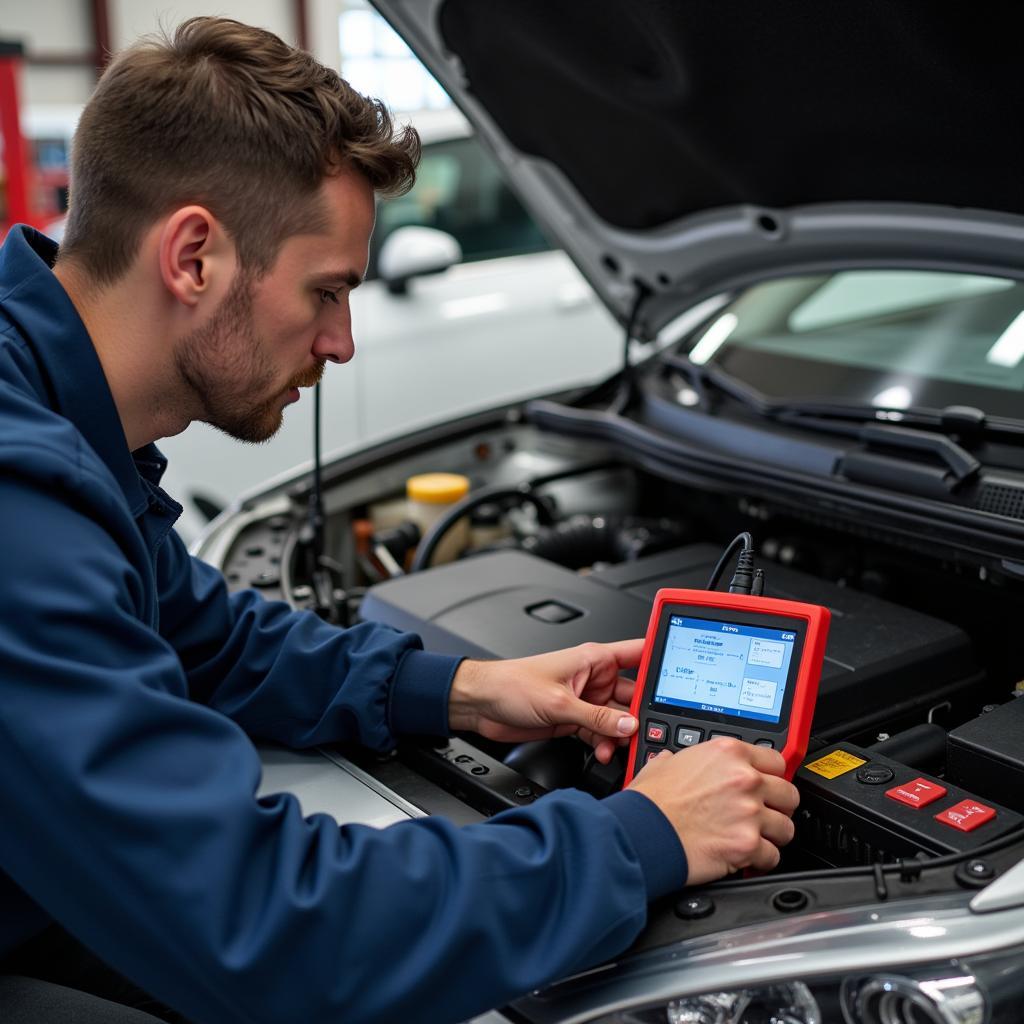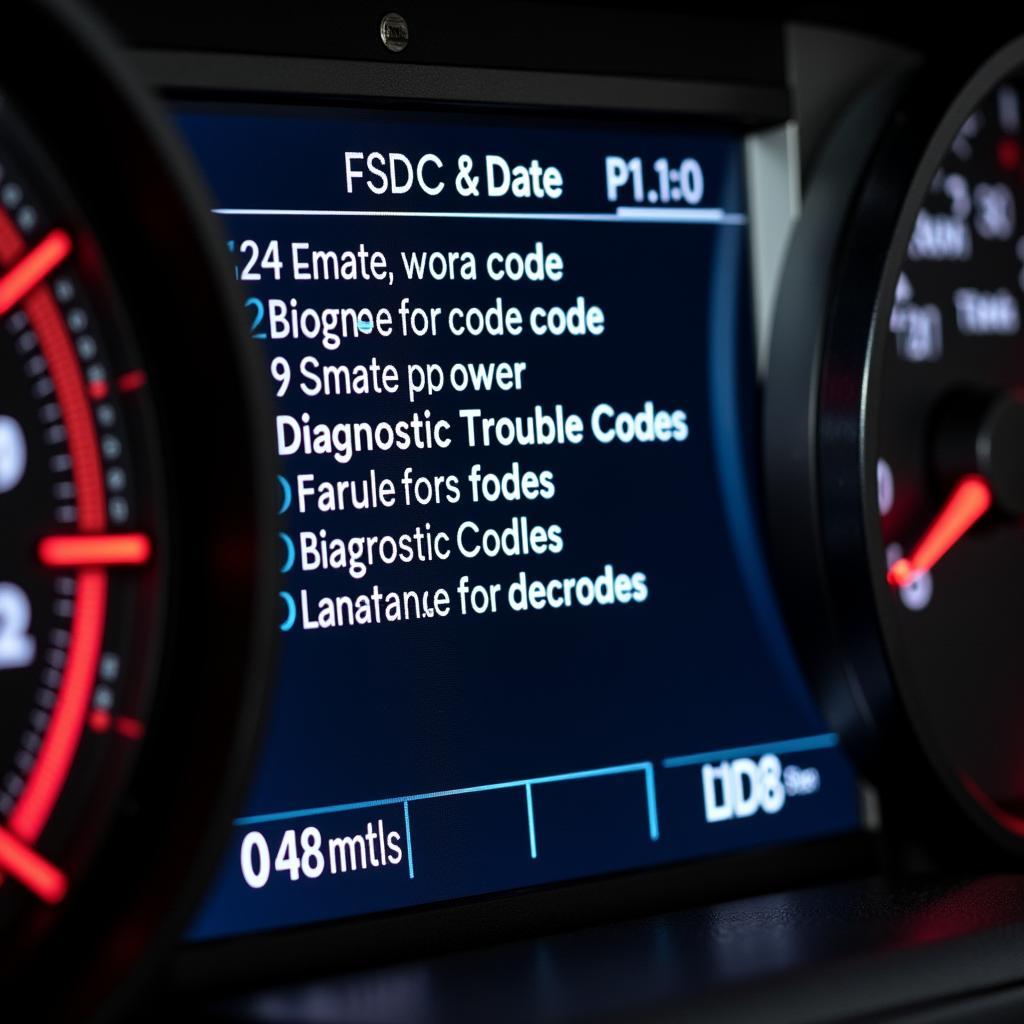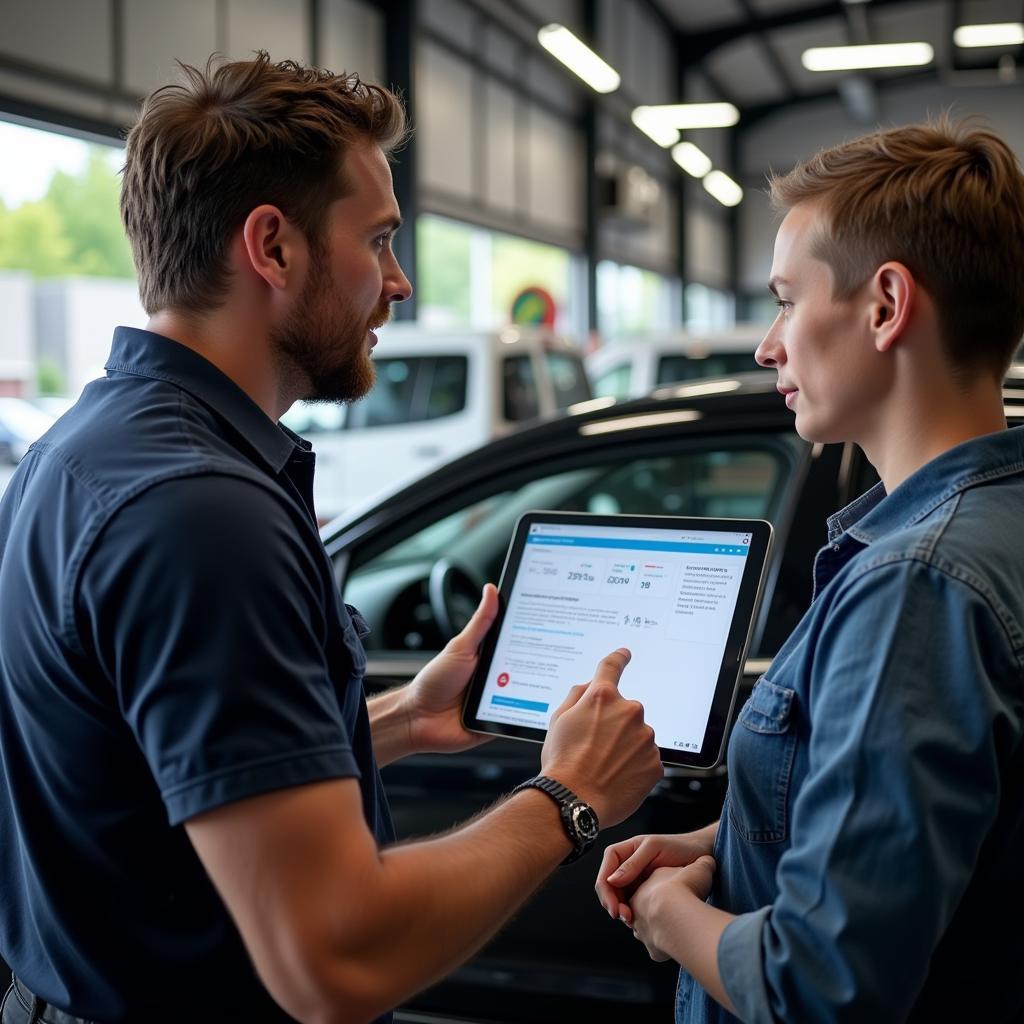Knowing how long a car diagnostic test takes is a common question for many vehicle owners. It’s a crucial part of car maintenance, helping pinpoint issues without poking around blindly. But unlike an oil change with a set timeframe, a car diagnostic test’s duration is a bit more nuanced.
Several factors can influence the length of time it takes to perform a diagnostic test on a car. This article delves into those factors, providing you with a clear understanding of what to expect.
Factors Affecting Diagnostic Test Duration
While a simple diagnostic test can be relatively quick, more complex issues can extend the process. Here are the key factors:
- Complexity of the problem: A straightforward issue, like a faulty oxygen sensor, can be diagnosed relatively quickly. However, intermittent problems or those involving multiple systems will naturally require more time to pinpoint.
- Mechanic’s skill and experience: A seasoned mechanic with advanced diagnostic tools can often identify problems faster than someone less experienced.
- Diagnostic equipment: Advanced scanners can access and analyze data more efficiently than basic models, potentially speeding up the diagnostic process.
- Vehicle make and model: Some car manufacturers have more complex systems than others, which can influence the time it takes to run a complete diagnostic test.
Average Diagnostic Test Time
On average, a car diagnostic test can take anywhere from 30 minutes to an hour. This timeframe encompasses connecting the diagnostic equipment, downloading the trouble codes, and conducting a preliminary analysis.
If the issue is easily identifiable, the mechanic might be able to provide a quick fix within that hour. However, if further investigation is required, the diagnostic process might take longer.
 Mechanic Connecting Diagnostic Scanner
Mechanic Connecting Diagnostic Scanner
What Does a Diagnostic Test Involve?
A car diagnostic test involves plugging a scan tool into your car’s OBD-II port. This port allows access to the car’s computer system, which stores data from various sensors throughout the vehicle.
The scan tool retrieves these Diagnostic Trouble Codes (DTCs), which are essentially codes that correspond to specific issues. For example, a code “P0420” indicates a problem with the catalytic converter system.
 Diagnostic Trouble Codes on Screen
Diagnostic Trouble Codes on Screen
However, it’s crucial to understand that these codes don’t always pinpoint the exact problem. Instead, they provide a starting point for the mechanic to begin their investigation.
When Do You Need a Diagnostic Test?
You don’t have to wait for a warning light to illuminate on your dashboard to get a diagnostic test. In fact, proactive car owners often get diagnostic tests as part of their regular maintenance schedule. This can help identify potential problems early on, preventing more costly repairs down the line.
Here are some common signs you might need a diagnostic test:
- Illuminated check engine light
- Unusual noises coming from the engine
- Decreased fuel efficiency
- Problems with acceleration or stalling
- Issues with electronic components, such as power windows or the radio
Beyond the Diagnostic Test
Once the mechanic has completed the diagnostic test and identified the root cause of the problem, they will provide you with a diagnosis and a recommended course of action. This might involve:
- Simple repairs: Replacing a faulty sensor or a worn-out part.
- More complex repairs: Addressing issues with the engine, transmission, or other vital components.
- Further diagnostics: If the initial test couldn’t pinpoint the issue, more in-depth diagnostics might be necessary.
 Mechanic Explaining Diagnosis
Mechanic Explaining Diagnosis
It’s essential to discuss the diagnosis and the estimated repair costs with the mechanic before authorizing any work.
Conclusion
Understanding how long a diagnostic test takes and what it entails can give you peace of mind and help you make informed decisions about your car’s maintenance. While the average time for a diagnostic test falls between 30 minutes to an hour, remember that various factors can influence the actual duration.
Remember, a car diagnostic test is not just about identifying a problem; it’s about understanding the underlying issue and addressing it effectively to ensure your vehicle’s optimal performance and longevity. If you need help figuring out what’s wrong with your car, don’t hesitate to schedule a diagnostic test with a trusted mechanic.
FAQs about Car Diagnostic Tests
1. Will a diagnostic test drain my car battery?
No, a diagnostic test itself doesn’t drain your car battery. The process uses minimal electricity. However, if your battery is already weak, it’s a good idea to mention it to the mechanic beforehand.
2. Can I perform a diagnostic test myself?
Yes, you can purchase OBD-II scanners for personal use. However, keep in mind that interpreting the codes and diagnosing the problem accurately often requires mechanical expertise.
3. Are diagnostic tests expensive?
The cost of a diagnostic test can vary depending on the mechanic and your location. Some auto repair shops offer free or discounted diagnostic tests, especially during promotional periods. You can also find out how much to do a car diagnostic test on our website.
4. Where can I get a free car diagnostic test?
Several places offer free car diagnostic tests, including some auto parts stores and mechanics running special promotions. It’s always worth asking around!
5. What’s a diagnostic test on a car?
A car diagnostic test is like a health checkup for your vehicle. It involves connecting a scanner to your car’s computer system to retrieve information about its health and identify potential issues.
6. Will a car diagnostic pick up electrical faults?
Yes, a car diagnostic test can typically pick up electrical faults. The OBD-II system monitors various electrical components, and any issues are usually logged as Diagnostic Trouble Codes (DTCs).
7. Where to get a free diagnostic test on my car?
Check with local auto parts stores and mechanics in your area, as they often have promotions for free diagnostic tests. You can also inquire about potential discounts or coupons.
Need further assistance or have more questions? Don’t hesitate to reach out to our expert team via WhatsApp: +1(641)206-8880 or Email: [email protected]. We’re available 24/7 to provide you with the best car diagnostic support and advice!

Leave a Reply